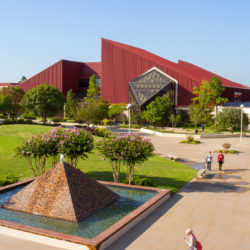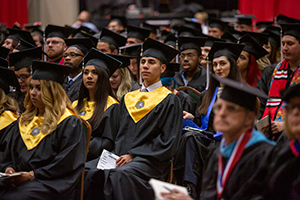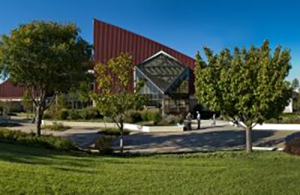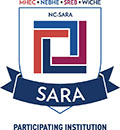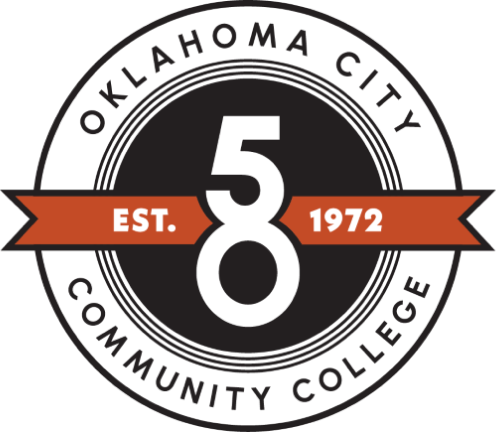Division of Science, Engineering and Mathematics Which OCCC general education math class is best for you?
Division of Science, Engineering & Mathematics
C. Max Simmons, Ph.D., Dean
Phone: (405) 682-7508
7777 South May Avenue
Oklahoma City, OK 73159
Which OCCC general education math class is best for you?
Which OCCC general education
math class is best for you?
The OCCC math department currently offers four classes that satisfy the college's general education requirement: Functions and Modeling, Precalculus, Contemporary Math, and Introduction to Statistics. Each of these courses was developed to satisfy particular needs. To decide which one is best for you, compare each class's design to the needs of your degree program.
Important: Whichever course you choose, check that it will transfer to the four-year school of your choice. Transfer Advising will help you with your transfer.
Math 1503 - Contemporary Mathematics
Prerequisite: MATH 0313 or adequate math placement; Pre or Co-requisite ENGL 1113 or ENGL 1103
3 CREDITS A study of the mathematics needed for critical evaluation of quantitative information and arguments (including logic, critical appraisal of graphs and tables); use of simple mathematical models, and an introduction to elementary statistics. This course satisfies the computer proficiency requirement.
The course has a required research element, required writing assignments and required computer projects. Some algebraic manipulation of formulas is expected. The student should leave the course with an appreciation of how mathematics is used directly or indirectly in everyday life. It is a terminal mathematics course and not a prerequisite for any other math course.
Degree Programs - Any program that does not require a subsequent Mathematics course
Math 2013 - Introduction to Statistics
Prerequisite: MATH 0313 or adequate math placement; ENGL 0203, adequate placement score, or by meeting determined placement measures
3 CREDITS The student will solve problems applying the concepts of random sampling, elementary probability, testing hypotheses, descriptive measures, chi-square, regression and correlation, and analysis of variance.
Students are expected to interpret mathematical information presented in a variety of formats (algebraic, numerical, graphical, and verbal) but the focus is on data sets. The course has a writing element in that students are expected to be able to write clearly defined hypothesis statements along with a summary of the result from the statistical testing method used. Statistical and testing calculations are accomplished by the use of graphing calculator technology. Students should leave the course with an ability to write and test a hypothesis about a given data set.
Degree Programs - Any program requiring statistical inference or the ability to read technical journals
Math 1483 - Functions and Modeling
Prerequisite: MATH 0313 or adequate math placement; ENGL 0203, adequate placement score, or by meeting determined placement measures
3 CREDITS The student will demonstrate an understanding of the general concepts of relation and function and specifically of polynomial, exponential, and logarithmic functions; the ability to solve systems of equations by utilizing matrices and determinants; and the ability to solve practical problems using algebra and digital techniques.
Students are expected to interpret mathematical information presented in a variety of formats (algebraic, numerical, graphical, and verbal). The course has a writing element in that students are expected to be able to answer problems with correct units and using complete sentences. Algebraic and digital techniques are included. Students should leave the course with an ability to solve equations both graphically and algebraically and be able to identify the correct model to use for a given bivariate data set. The course is not a prerequisite for Math 2104 Calculus I.
Degree Programs - Any program requiring MATH1743 Calculus for Business, Life Sciences, Social Sciences
Math 1533- Precalculus and Analytic Geometry
Prerequisite:Adequate math placement OR co-enrollment in MATH 0531 and ENGL 0203, adequate placement score, or by meeting determined placement measures
3 CREDITS This course is intended to serve students for whom Calculus and Analytic Geometry I is a requirement. Topics will include conic sections, systems of equations (both linear and nonlinear), and a general discussion of functions with emphasis on polynomial, rational, exponential, and logarithmic functions.
The primary technique used to solve problems is algebraic techniques worked out by hand. Digital techniques are used for problems that cannot be solved algebraically. The course has a minimal writing element in that students are expected to be able to answer problems using correct units. Students should leave the course with the algebraic skills needed to be successful in a freshman engineering calculus course.
Degree Programs - Any program requiring Math 2104 - Calculus and Analytic Geometry I
